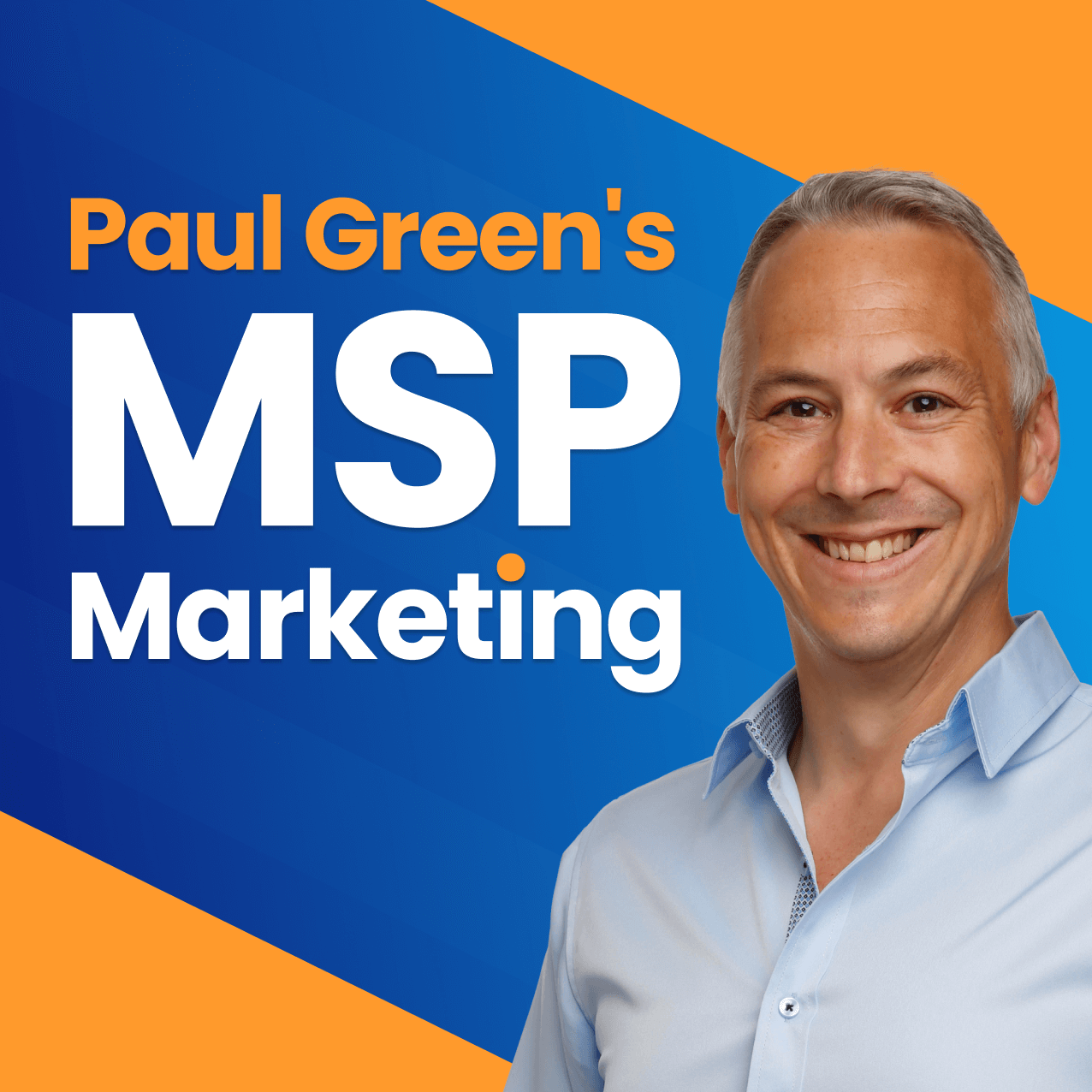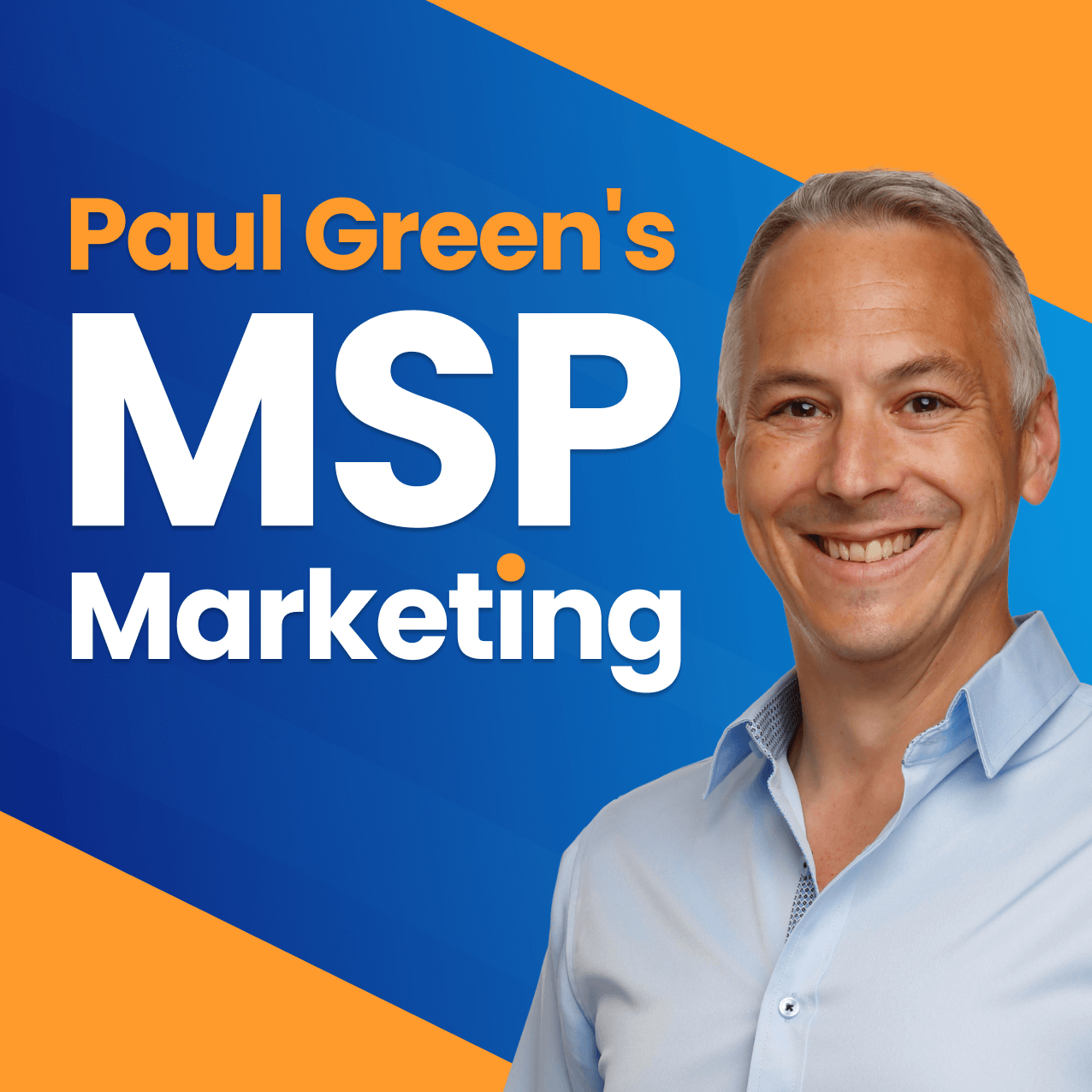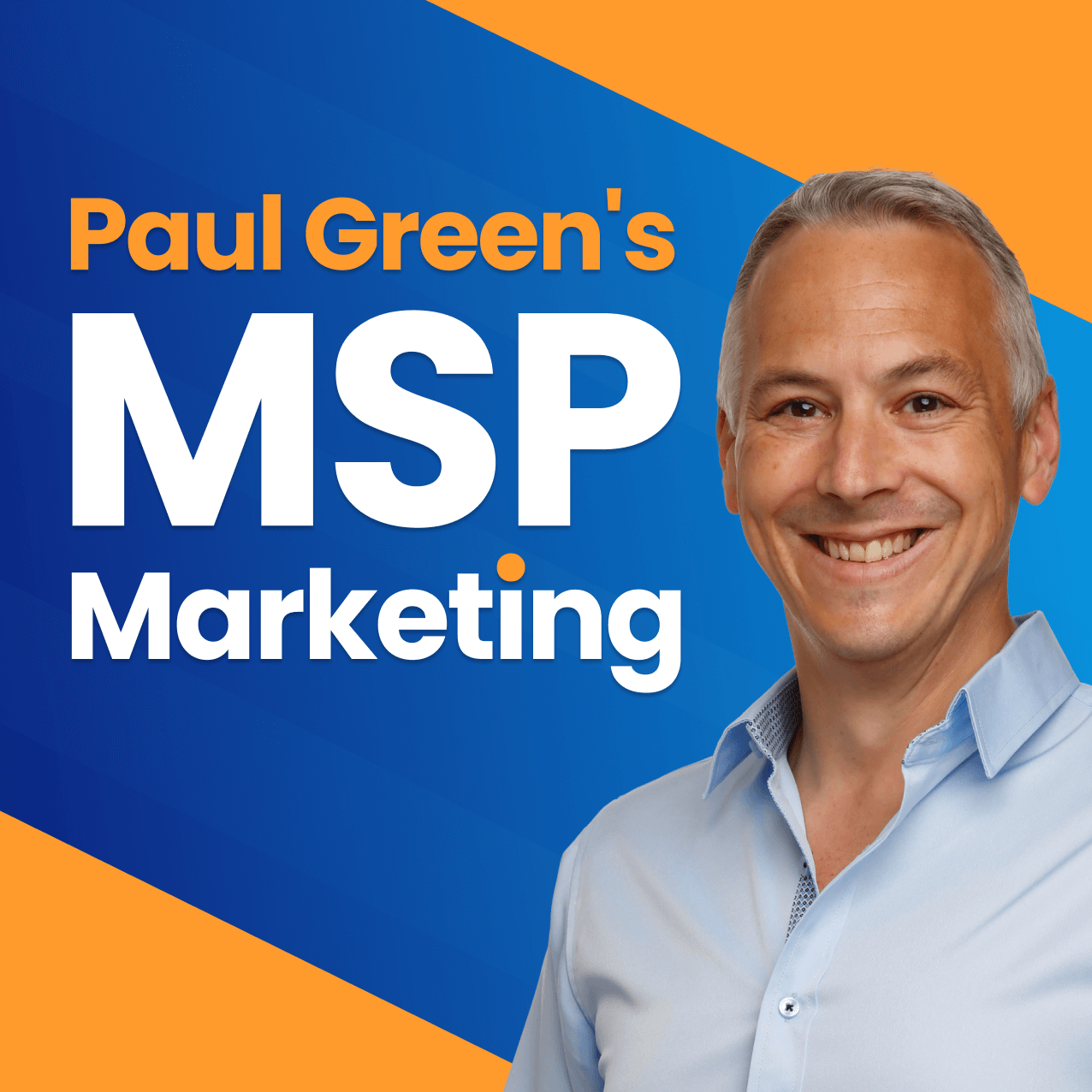MSP owners: Why do we make our lives so hard?
Description
The podcast powered by the MSP Marketing Edge
Welcome to Episode 253 of the MSP Marketing Podcast with me, Paul Green. This week…
- MSP owners: Why do we make our lives so hard?: Business owners often hinder their own success by running a marathon while carrying an anchor, meaning they knowingly hold themselves back through overwork, limited thinking, or mismanagement.
- The most powerful MSP marketing question to ask any lead: Asking this is a great way to prioritise your leads and create a follow-up list for the future.
- How to do marketing within the CIS security framework: One of your challenges is making ordinary business owners and managers realise how important good security is. Find out how you can achieve this using the Center for Internet Security controls. My guest, Zach Kromkowski, explains all.
- Paul’s Personal Peer Group: Sean, who runs as MSP in Houston, wants to learn more about AppSumo and what it has to offer.
MSP owners: Why do we make our lives so hard?
You and I as business owners, we are in this for the long run, right? Whether this is your first year in business or your 30th, you know that owning a business is a marathon and not a sprint. So that being said, why do we constantly make life hard for ourselves? Far too many MSPs decide to run the marathon while carrying an anchor. It’s nuts. Let’s talk about why we do this and how to give ourselves a much easier life, yet still achieving the things that we want from our business.
So I was listening to this book a few months back. It was written by the guy who built up the Burger King chain back in the 1950s and 60s if you’re interested. It’s called The Burger King. It was, okay, not the most instructive business book in the world, but I do believe you can get huge value from any book as long as you get one big idea from it. Do you agree with me on that? Anyway, my big takeaway from this book was a phrase I’ve never heard before, but I instantly understood what it meant.
Business owners make life hard for themselves by running a marathon while carrying an anchor.
And I completely relate to this, do you? It means that even though we know it’s not a sprint race and we know we have to keep going for years and years and years, we seem to noble ourselves in as many ways as we can. Perhaps it’s by continuing to work 60 hours a week despite being surrounded by very competent staff who are actually looking for more things to do. Or perhaps it’s by not taking enough vacation, enough holiday time each year, which means that when we do take a break, we are utterly exhausted. Or perhaps it’s by thinking too small.
There are many ways that we hold ourselves back and don’t think this is just an MSP thing. All business owners everywhere in all sectors do exactly the same thing. But the thing is, the clues to long-term success are there if you go looking for them. Just listen back to any of the fantastic interviews that I’ve done in the MSP Marketing Podcast over the last five years, and you’ll hear very, very successful people talking about how they broke out of the “hell phase” of running a business, where you’re trapped doing 60 hours a week, and they entered a new phase where they’re working primarily on the business rather than in it. And often the massive growth of their business starts to happen at exactly that moment. And this is not really a surprise – there is a direct correlation.
So let me ask you – maybe it’s worth you pausing this podcast or this YouTube video to ask yourself this question – what do you do to hold yourself back? What’s the anchor that you are carrying during your marathon? The first step is to identify it, label it as what it is, and then dedicate yourself to finding ways to eliminate it. Maybe it’s a mindset issue. Maybe it’s a workload issue, maybe it’s a resourcing issue. You can’t fix these things until you know what the problem is. Then you can take proactive action to eliminate the problem. Let me finish with one more quote from that book, and I’m paraphrasing here, but this is the right sentiment. The greatest gift we can give ourselves as business owners is positivity, and that comes out of taking action against our problems. I love that. Don’t you? Come on then. Let’s do it. You and me. Let’s take some action.
The most powerful MSP marketing question to ask any lead
I recommend all MSPs focus their marketing efforts on building multiple audiences of people on LinkedIn and email, growing a relationship with those audiences through content marketing and then converting them from leads to clients. And the easiest way to do that is to offer them a 15 minute video call with you.
It’s a very low commitment first step that gives you the opportunity to ask them about their favourite subject, which is of course, themselves and their business. And then you can try to set up a proper, in real life, sales meeting. Now this video call is something you should offer on your website, offer it on your LinkedIn, offer it everywhere that you engage with people who are potential future prospects. And the call should consist of lots of open questions from you exploring them, their business, their needs, their wants, their fears and their desires.
The more they talk, the less you talk, then the more engaged they will be. But there’s also a very leading question that you absolutely must ask. They’ll give you a one word answer that will reveal exactly how likely they are to become a client. Here’s the question…
On a scale of 1 to 10 – where 1 is terrible and 10 is world class – how do you rank your current IT support company?
Ask this question and then go quiet. Give them space to think about it and answer it. You can colour grade this lead based on their answer because you’ll instantly know if they’re a great prospect or just a tyre kicker.
If they answer ten, nine or eight, then they’re a red lead and are very happy with their incumbent MSP, so add them to your email list, wish them well and call them back in a year to see if anything has changed.
If they answer seven or six, then they are an amber lead and there’s a high level of dissatisfaction with their incumbent MSP. Test if this is short-term and happiness, maybe a support call this week wasn’t handled very well, or whether it’s actual proper long-term dissatisfaction. If it is, then they could go on to be a super hot prospect for you.
And if they answer five or below, then they are a green lead. They are desperately unhappy and they’re very likely to take action on this unhappiness at some point. They are yours for the taking. So dedicate all of your sales attention on them.
By the way, for answers of seven or below, use this follow-up question to get some understanding – Can I ask what made you give them that score? Your lead may then tell you exactly what has created their unhappiness. And this is a very powerful thing to know in the sales process that you’re about to start with them.
How to do marketing within the CIS security framework
Featured guest: Zach Kromkowski, co-founder of Senteon and dedicated to transforming the cyber security landscape for MSPs and enterprises by delivering unparalleled automated solutions for endpoint hardening.
His mission is to simplify and enhance security measures across workstations, servers, and browsers, ensuring top-tier protection and regulatory compliance with minimal manual intervention.
I know how important cyber security is to you and what you do on a daily basis, and I also know that one of your challenges is trying to make ordinary business owners and managers realise how important good security is and how they need to invest in it. My special guest has a fantastic approach to this, using the framework laid out by the Center for Internet Security. Let’s explore how he uses that and how you can do the same in your MSP. This interview will show you that the CIS framework is perfect to build your marketing around.
I’m Zach Kromkowski, co-founder to Senteon manage endpoint hardening and first time security entrepreneur.
And congratulations for being a first time security entrepreneur. It’s awesome, right, isn’t it, running your own business. And also congratulations for coming in here on the show and we are going to talk today about how you can use cyber security frameworks actually as a marketing tool. So not just there to keep your clients safer, but to actually attract new people and to upsell your existing clients. Now, before we talk about that, Zach, let’s have a little bit of your history. So talk us through what you’ve been doing and what made you start this business.
Yeah, I mean, this is a long answer, but I will do my best to keep it concise. So security is ultimately something that everyone talks about, but we realise no one really knows where to start. And my co-founding team is actually a team of four. And when we were in university, we were told to configure our assets and do all these traditional best practices for security posture. But when we went to the real world, we realised it wasn’t happening. So why in school were we being told you have to configure your asset, you have to set it to the correct state, but it didn’t happen. So we realised there was a gap from what we learned in school versus the workforce today. And that gap made us question, why isn’t this h









